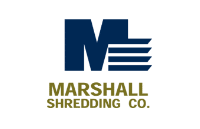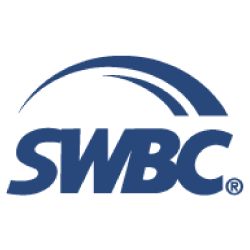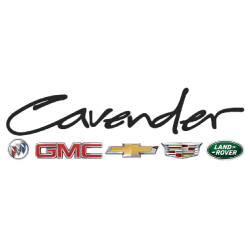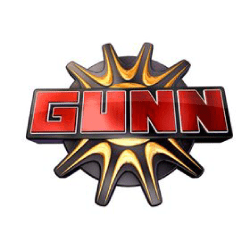Frequently Asked Questions
Don’t hire any shredding company until you have asked them these Frequently Asked Questions…
Please click on each question to read more.
Protecting Your Identity and Information
With identity theft and information fraud at an all-time high, the federal government has enacted over 40 information destruction laws to protect consumers. Here’s a synopsis of the three most significant pieces of consumer information protection legislation:
FACTA
The Fair and Accurate Credit Transaction Act (FACTA) requires that any individual or business that maintains personal consumer information must take reasonable care to protect against unauthorized access to this information, and they must also destroy personal consumer information before it is discarded. Violation of FACTA, which went into effect in 2005, can mean fines and penalties of up to $2,500 for each consumer record compromised.
For more information about FACTA click here.
HIPAA
The Health Insurance Portability and Accountability Act (HIPAA) sets national standards for the protection of personal health information. HIPAA, which went into effect in 1996, requires all healthcare providers, including any organization that transmits personal health information, to maintain the confidentiality of this information and to destroy the information before it is discarded.
GLB
The Gramm-Leach-Bliley Act requires that all financial institutions protect the confidential information of their clients. Banks, credit unions, mortgage companies, investment and financial services firms and insurance underwriters are among those affected. Fines for violating GLB can be severe. American United Mortgage Company was fined $50,000 for violating GLB (learn more).
For more information about GLB click here.
Identity Theft Enforcement and Protection Act of 2005
The Identity Theft Enforcement and Protection Act (the “ITEP Act”) , mandates that businesses have a legal duty to protect and safeguard sensitive personal information.
Similar to the Gramm-Leach Bliley Act, the ITEP Act requires businesses that collect or maintain sensitive personal information in the regular course of business to implement and maintain reasonable procedures and corrective measures to protect and safeguard sensitive personal information from unlawful use or disclosure. Further more , the ITEP Act includes a “Dumpster Diving”provision where companies are required to destroy customer records no longer in use by shredding, erasing modifying the records to make the information unreadable or undecipherable.
The ITEP Act not only allows the Attorney General to seek permanent injunction, but also exposes defendants to a civil penalty of at least 2,000 and up to $50,00 against each defendant.
For more information click here.
Total Security Breaches Nationwide Tops 218 Million
Think a security breach can’t happen to your organization? Think again! Since they began tracking security breaches in Jan. 2005, PrivacyRights.Org reports that over 218 million confidential files, in every imaginable industry, have been compromised!
For a comprehensive list of these information security breaches, click here.
5 Reasons You Should Dump Your Office Shredder And Hire Us
1. Office Shredders Produce Strips of Paper That Can Be Reassembled
Most office shredding machines shred paper using a cross-cut or ribbon cut method. So when these strips of paper are discarded or recycled, “dumpster divers” just sort through the trash and reassemble these paper strips. This gives them easy access to confidential information you thought was destroyed. In fact this form of information fraud is so common, now there’s software available to help these thieves scan and reassemble this information.
Marshall Shredding uses advanced shredding technology to produce a confetti-like output that is small and unreadable. And since there are hundreds of pounds of documents from numerous clients, all mixed together, our shredded material is impossible to reassemble.
2. Office Shredders Can Cost Twice As Much As A Shredding Service
Small businesses that operate an office shredder spend, on average, 15 minutes of staff time each and every day, shredding confidential documents. When you consider employee wages and benefits, then factor in depreciation and maintenance costs on the shredder, it costs (on average) about $95 per month to operate an office shredder. That’s nearly twice as much as our regularly scheduled, on-site shredding pickup service.
3. Office Shredders Can Leave You Vulnerable In Audits And Lawsuits
Irregular shredding practices. That’s the charge an auditor or lawyer can make when they discover your organization uses an office shredder. Why? Because in-house shredding programs don’t adhere to a regular shredding schedule and they don’t provide adequate documentation of what’s been shredded, when it’s been shredded or by whom. So when a question arises as to when and why a particular piece of information was shredded, organizations without documentation are susceptible to severe fines.
Marshall Shredding offers a variety of regularly scheduled shredding services and a Certificate of Destruction to provide documented evidence of every single shred.
4. Office Shredders Are A Safety Hazard
In the last five years there have been more than 50 reports of injuries from office shredders, including lacerations and lost fingers. And while these cases are isolated, office shredders have sharp blades that can injure you if you’re not careful. Additionally, office shredders produce paper, plastic and metal dust fragments that, left unchecked, can get into the air ducts and create a fire hazard.
Marshall Shredding’s shredding service means you’ll never have to deal with sharp blades or dust fragments again.
5. Office Shredders Make A Big Mess
Even though “shredder mess” is not a risk factor, it’s still something that you’ll have to deal with if you use an office shredder. Fragments of paper will fall onto the floor while dust builds up on the shredder, the shredder table and the floor.
Marshall Shredding eliminates shredder mess caused by office shredders.
Understanding the Costs
If you’re a business professional who thinks that “feeding the office shredder” is a cost effective way to protect your clients, customers or patients from identity theft and the unauthorized disclosure of private information…then I’d like to challenge you to calculate your own costs, to see just how much money “do it yourself shredding” is costing you.
An Office Shredder Costs A Lot More Than You’d Think
To illustrate, let’s take a look at a typical business office. When they decided to start shredding they purchased a shredder at an office supply store for $185. The chart below shows how much it cost this business to operate their office shredder.
Calculate your cost here.
A Typical Business Office Will Spend $97.58 a Month
In our example, there are five employees that use the office shredder during the course of a day, each averaging about three minutes of daily shred time or 15 minutes total per day for the entire office. (Remember shred time is not just the amount of time the shredding machine manufacture claims it takes to shred paper. One must also include the time to sort the documents, walk from the work area to the shredder, pick up and straighten the paper, feed the paper into the shredder and clean up any paper residue and when necessary, dispose of the shredded paper.)
Since the average hourly wage of their employees, plus benefits is $16.19. The total monthly labor cost to operate an office shredder is $87.71. Factor in depreciation and maintenance costs (shredding blades must be sharpened) the total cost of operating their office shredder is $97.58 per month.
How Much Is The Office Shredder Costing You?
Now your costs will be different based upon how much you shred, your average hourly wage, initial cost of the shredder, etc. But the fact is that using an office shredder costs twice as much as a monthly pickup by a shredding service…and saving money isn’t even the best reason to use a shredding service. (To learn how your shredding service is putting you at risk, click here.)
Here’s Your Incentive To Stop Using Your Office Shredder
There’s never been a better time to switch from using your office shredder to our regularly scheduled shredding service.
30 Days of Free Shredding (New customers only)
We’ll give you 30 days of our regularly scheduled shredding services, for FREE!
Monthly shredding services cost far less than you’d think. Click here for a Free Quote.









